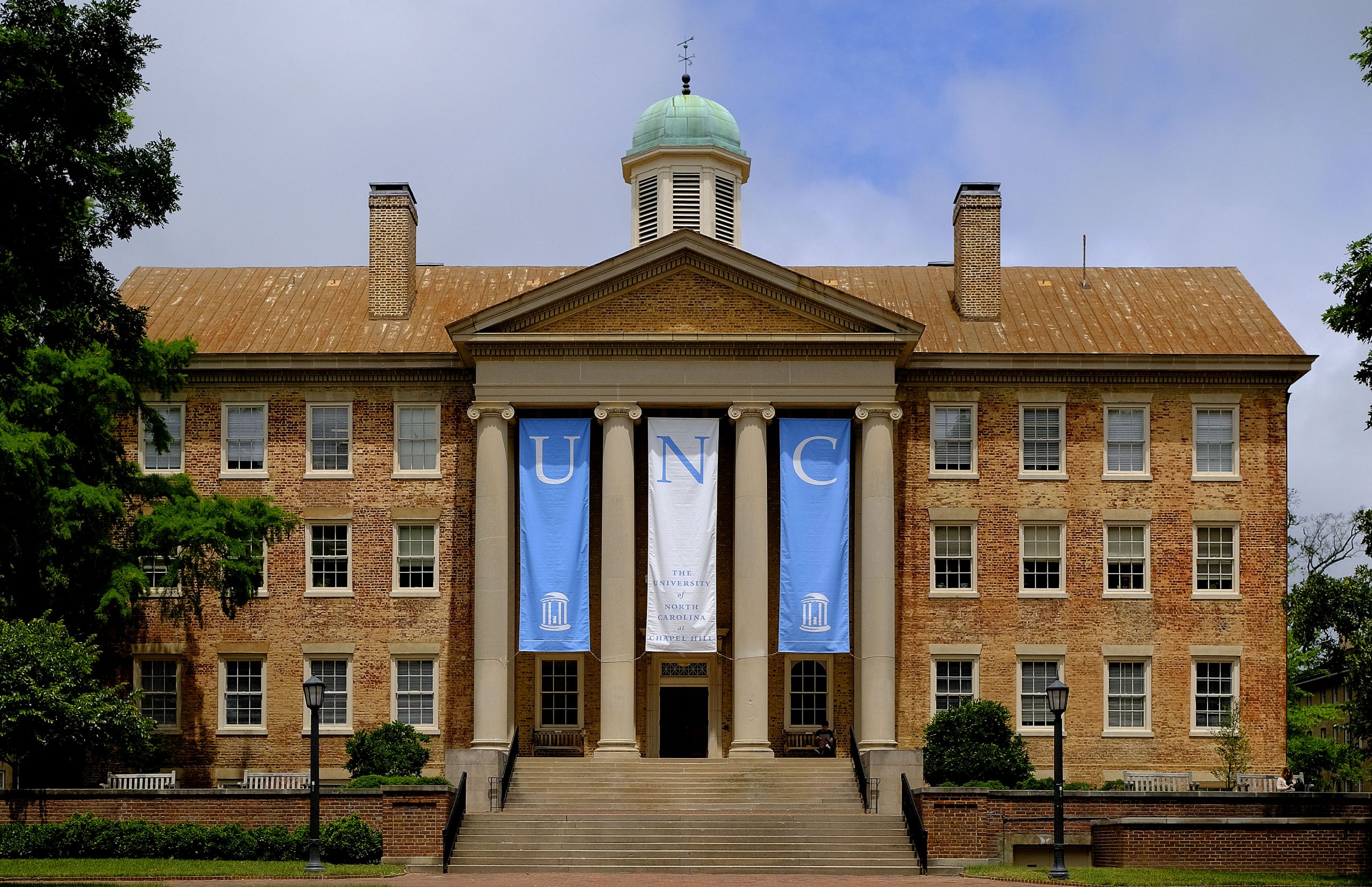UNC Unveils Race Reckoning Program
Posted on Jan. 9, 2020
Guskiewicz said he has spent the past 10 months gathering feedback from across campus on “how to best recognize the University’s complicated history, promote reconciliation” and build on the work of the previous task force. (Grant Halverson ’93)
The administration of Kevin Guskiewicz says it wants UNC to “study and heal from its past,” and on the first day of spring classes it rolled out some details of what it plans to do with the $5 million commitment he announced as he began his chancellorship in December.
“Our University is many things, but our core mission is fostering teaching, learning and research that improves the human condition,” Guskiewicz said. “To accomplish this, we need a strong, stable and welcoming community, where everyone feels emboldened to do their best work and all are dedicated to fostering an environment of inclusive excellence.”
The fund for what he called “multi-year work” will be applied to these initiatives:
• The Commission on History, Race and a Way Forward, which will focus on research, curriculum development and curation of Carolina’s racial past;
• A Reckoning Initiative and a new initiative in development called Southern Futures; and
• A previously announced Campus Safety Commission organized to address all aspects of community safety, including the need to build stronger relationships and communication with campus police.
The effort can be traced to a charge by the Board of Trustees in May 2015 when it voted to remove the name of a Ku Klux Klan leader from a classroom building. The board envisioned historical markers to address difficult aspects of UNC’s past. Today, an elaborate display in the lobby of the former Saunders Hall represents that charge, but issues surrounding the Confederate monument saga delayed the additional markers. A previous task force worked without a budget but was funded from the chancellor’s office as needed; its work essentially was paused after the Confederate monument was pulled down by protesters in August 2018 a year after Charlottesville’s Unite the Right rally.
Guskiewicz said he has spent the past 10 months gathering feedback from across campus on “how to best recognize the University’s complicated history, promote reconciliation” and build on the work of the previous task force.
“Diversity and inclusion are integrally connected to excellence in making new discoveries and in our service to the people of North Carolina and beyond,” he said.
“Commission members will work to strengthen the University’s relationships with under-represented communities through conversations regarding the past and develop protocols and practices for ethical engagement with historically disenfranchised people today,” Guskiewicz’s message to the campus community said.
The commission, set to start work Feb. 7, will be co-chaired by Jim Leloudis ’77 (’89 PhD), a longtime Carolina history professor and scholar on the modern South who is also the Peter T. Grauer Associate Dean for Honors Carolina and the director of the Johnston Center for Undergraduate Excellence; and Patricia Parker, a longtime faculty member and chair of the Department of Communication, where she also is an associate professor of critical organizational communication studies and director of the Graduate Certificate in Participatory Research.
Members of the commission are:
• Delores Bailey, executive director, EmPOWERment Inc., Chapel Hill;
• Larry Chavis, clinical associate professor of Strategy and Entrepreneurship, Kenan-Flagler Business School and director, UNC American Indian Center;
• Giselle Corbie-Smith, Kenan Distinguished Professor of social medicine; director, Center for Health Equity Research; and professor, internal medicine, School of Medicine;
• Nicholas Graham ’98 (MSLS), University archivist;
• Ronald Harris ’19, dean’s fellow, Honors Carolina;
• Amy Locklear Hertel ’97, chief of staff to the chancellor and clinical assistant professor, School of Social Work;
• Sherick Hughes ’99 (MPA, ’03 PhD), professor, School of Education; founder and director, Interpretive Research Suite and Carter Qualitative Thought Lab; and founder and co-director, Graduate Certificate in Qualitative Studies;
• Kenneth Janken, professor of African, African American and diaspora studies and director of undergraduate studies and department honors adviser;
• Dawna Jones, assistant dean of students and chair, Carolina Black Caucus;
• Joseph Jordan, director, Sonja H. Stone Center for Black Culture and History and adjunct associate professor of African, African American and diaspora studies;
• Seth Kotch ’05 (MA, ’09 PhD), associate professor, American studies; director of graduate studies; and coordinator of Southern studies;
• Danita Mason-Hogans, project coordinator, critical oral histories, Center for Documentary Studies at Duke University; and
• Josmell Pérez ’12 (MA), director, Carolina Latinx Center.
The commission seeks ideas from the public; those can be submitted via email to buildourcommunity@unc.edu. Proposals should include a two- to three-page description of the “proposed goals, collaborators, desired outcomes, timeline and budgetary needs.”
